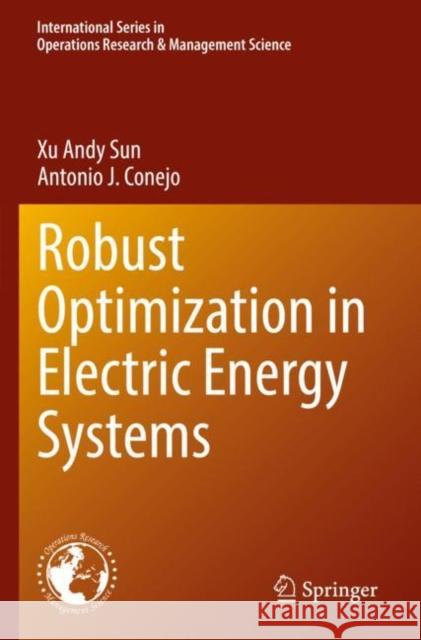Robust Optimization in Electric Energy Systems » książka
Robust Optimization in Electric Energy Systems
ISBN-13: 9783030851309 / Angielski / Miękka / 2022 / 329 str.
This book covers robust optimization theory and applications in the electricity sector. The advantage of robust optimization with respect to other methodologies for decision making under uncertainty are first discussed. Then, the robust optimization theory is covered in a friendly and tutorial manner. Finally, a number of insightful short- and long-term applications pertaining to the electricity sector are considered.Specifically, the book includes: robust set characterization, robust optimization, adaptive robust optimization, hybrid robust-stochastic optimization, applications to short- and medium-term operations problems in the electricity sector, and applications to long-term investment problems in the electricity sector. Each chapter contains end-of-chapter problems, making it suitable for use as a text.The purpose of the book is to provide a self-contained overview of robust optimization techniques for decision making under uncertainty in the electricity sector. The targeted audience includes industrial and power engineering students and practitioners in energy fields. The young field of robust optimization is reaching maturity in many respects. It is also useful for practitioners, as it provides a number of electricity industry applications described up to working algorithms (in JuliaOpt).
This book covers robust optimization theory and applications in the electricity sector. The advantage of robust optimization with respect to other methodologies for decision making under uncertainty are first discussed. Then, the robust optimization theory is covered in a friendly and tutorial manner. Finally, a number of insightful short- and long-term applications pertaining to the electricity sector are considered.Specifically, the book includes: robust set characterization, robust optimization, adaptive robust optimization, hybrid robust-stochastic optimization, applications to short- and medium-term operations problems in the electricity sector, and applications to long-term investment problems in the electricity sector. Each chapter contains end-of-chapter problems, making it suitable for use as a text. The purpose of the book is to provide a self-contained overview of robust optimization techniques for decision making under uncertainty in the electricity sector. The targeted audience includes industrial and power engineering students and practitioners in energy fields. The young field of robust optimization is reaching maturity in many respects. It is also useful for practitioners, as it provides a number of electricity industry applications described up to working algorithms (in JuliaOpt).











